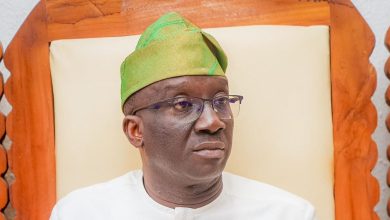Teen Girl Serves as Nigeria’s Vice President for a Day in Abuja
Vice President Kashim Shettima allowed teenage girl Joy Ogah to serve symbolically as Nigeria’s vice president for a day.
The initiative, organized by Plan International, promoted girl-child empowerment and educational inclusion.
Vice President Kashim Shettima, on Monday, October 20, allowed a teenage girl, Joy Ogah, to symbolically serve as the vice president of Nigeria for one day. The gesture, held at the Presidential Villa in Abuja, was part of an initiative by Plan International to promote mentorship, inclusion, and empowerment of the girl-child.
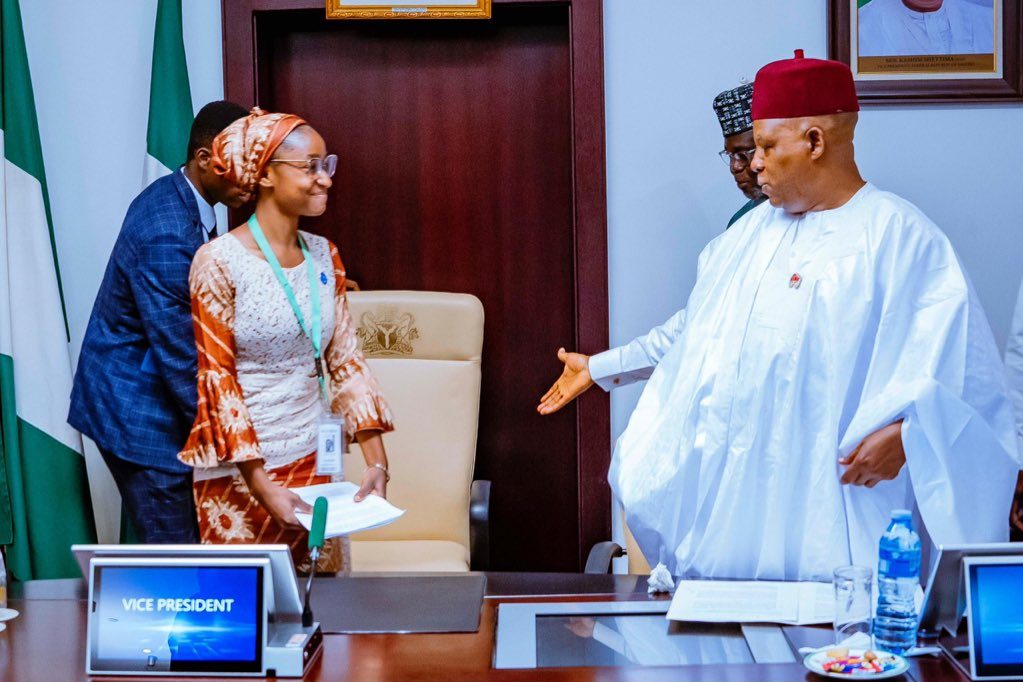
The event was attended by a delegation from Plan International led by Helen Idiong, the organization’s Director of Program, Quality and Innovation. Speaking at the meeting, Shettima described the act as a reaffirmation of the Tinubu administration’s dedication to gender equality and education for all Nigerian children.
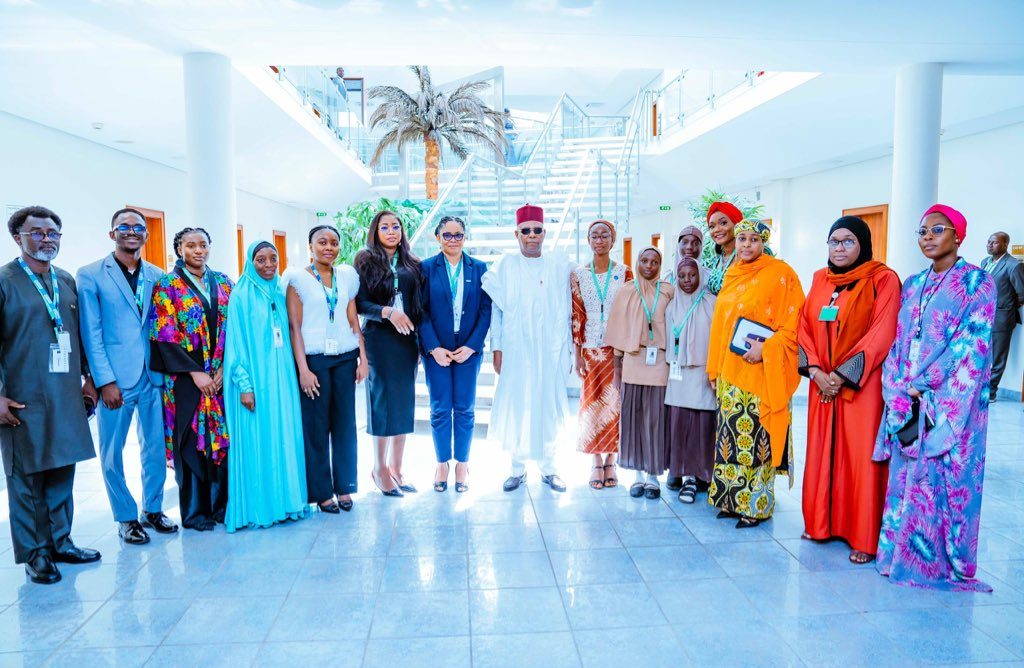
According to him, President Bola Tinubu remains committed to ensuring that every girl in Nigeria has access to education and opportunities to fulfil her potential. “In President Bola Tinubu, you have an ally you can believe in and invest your trust in,” Shettima said, highlighting that the administration’s programmes such as the school feeding initiative are designed to encourage attendance and reduce dropout rates among young girls.
The vice president also praised the First Lady, Senator Oluremi Tinubu, describing her as an inspiring example of what an empowered girl-child can become. “The first lady is a symbol of how a properly empowered and supported girl-child can blossom into a great leader,” he noted.
Shettima stressed that the government’s policies are intentionally inclusive and aimed at promoting fairness. “We believe in inclusivity. We cannot disenfranchise half of our population and expect to grow as a nation,” he said.
After his remarks, Shettima invited Joy Ogah to take over his seat, officially acting as the vice president for a day. Sitting in Nigeria’s second-highest political office, Ogah delivered a heartfelt message urging all stakeholders to work together in protecting and educating the nation’s girls.
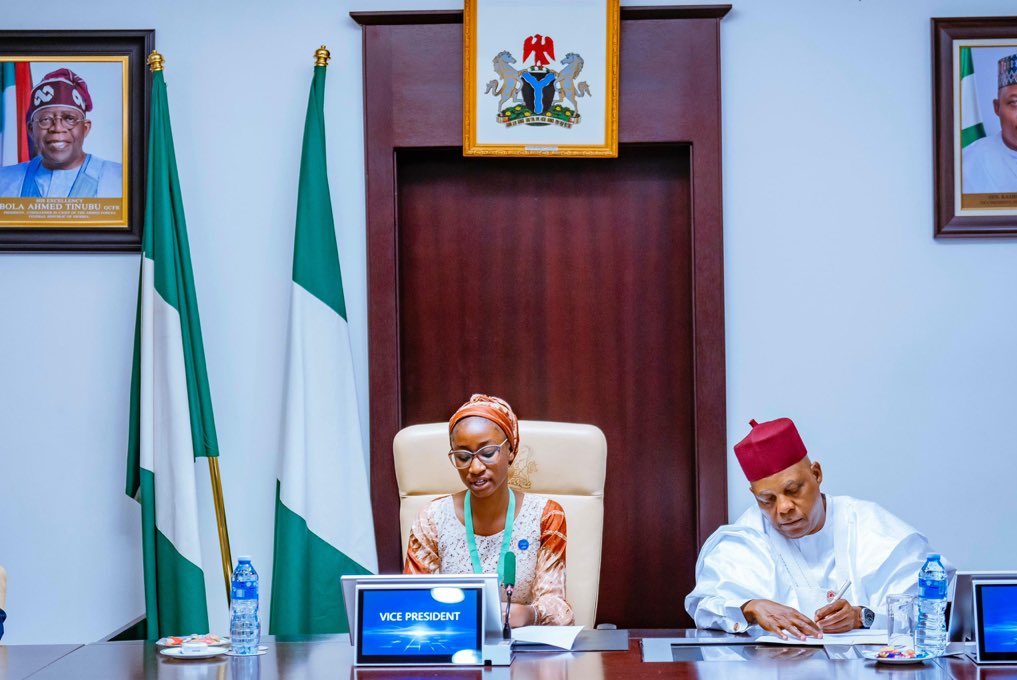
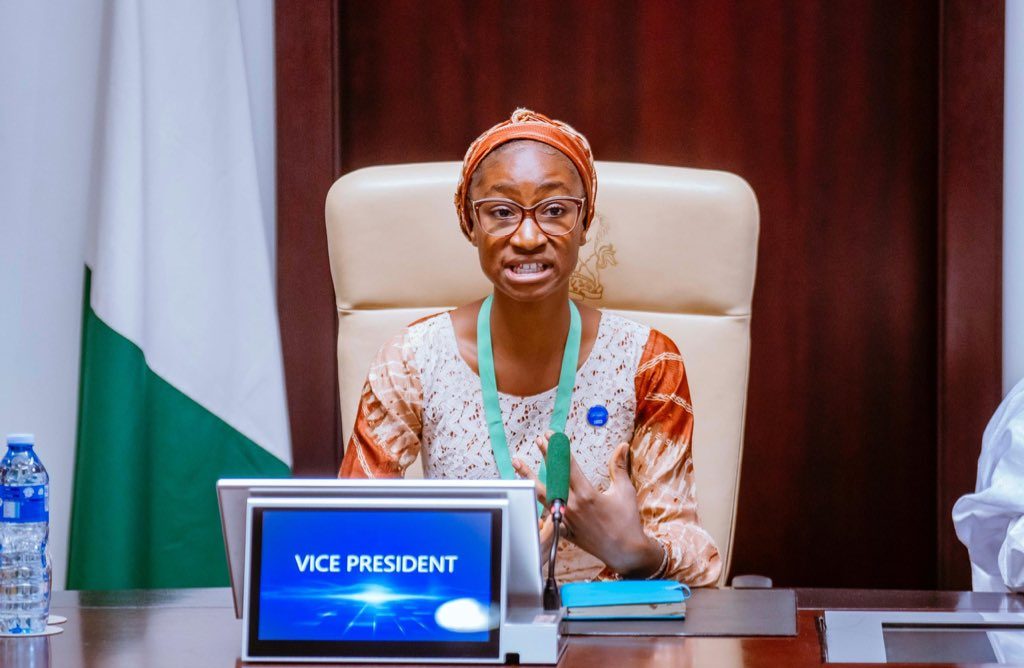
“We must invest in education that is safe and inclusive for every child in Nigeria. When girls are protected, peace becomes possible,” she said.
Ogah expressed concern over the growing number of out-of-school children in Nigeria, noting that 10.5 million children currently lack access to education and that girls make up more than 60 percent of that figure. She appealed to government agencies, private organizations, and communities to address the challenges keeping children, especially girls, away from classrooms.
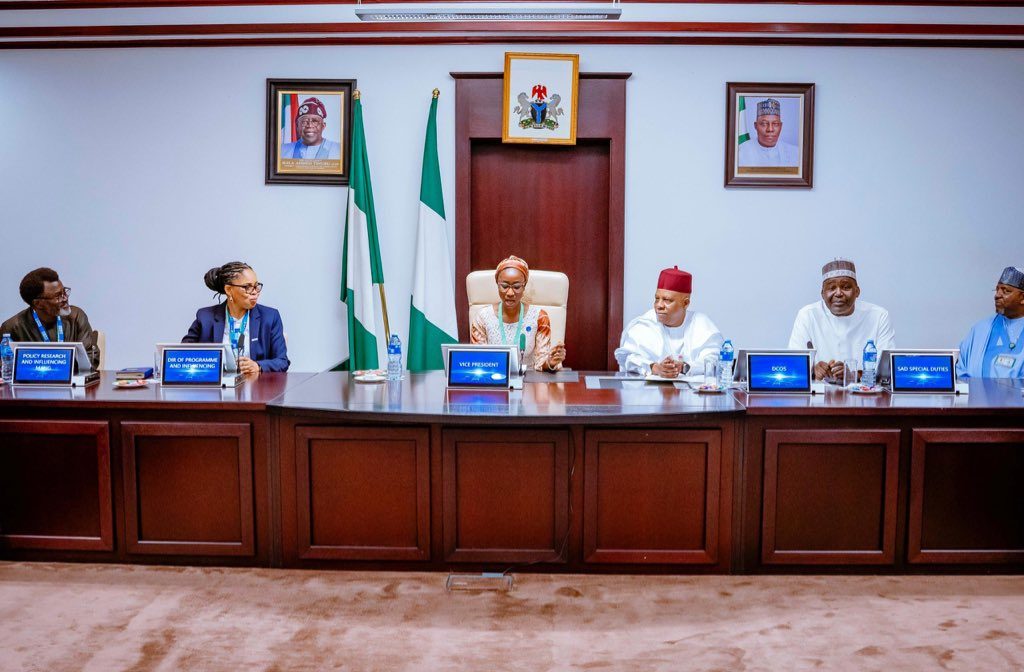
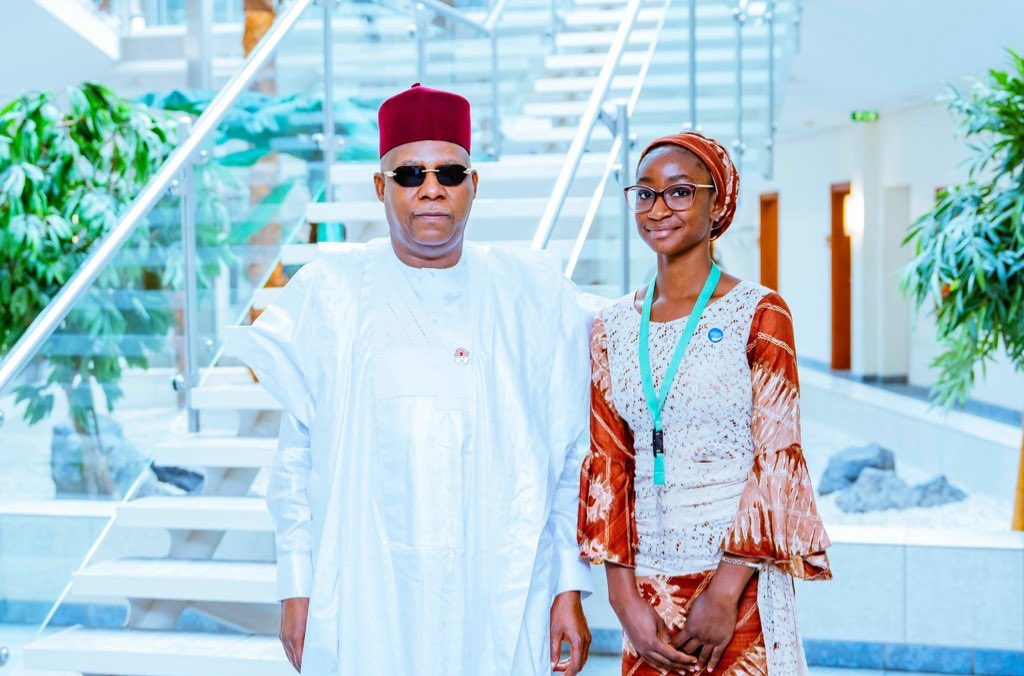
She further called for the distribution of free sanitary products, clean water, and improved nutrition in schools to ensure that girls stay enrolled and perform better academically. “I may be the vice president for a day, but the struggles I represent cannot end in a day,” Ogah added. “They must continue in our policies, our classrooms, our conversations, and our budgets.”
Through symbolic moments like this, the Tinubu government aims to reinforce that gender equality is not just a goal but a collective duty in building a more inclusive and equitable Nigeria.



